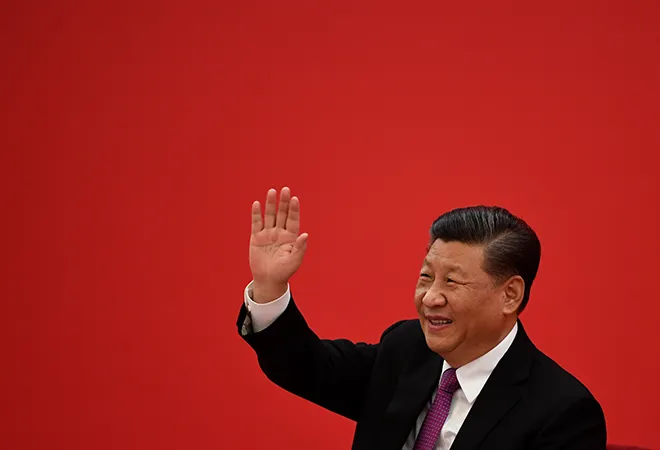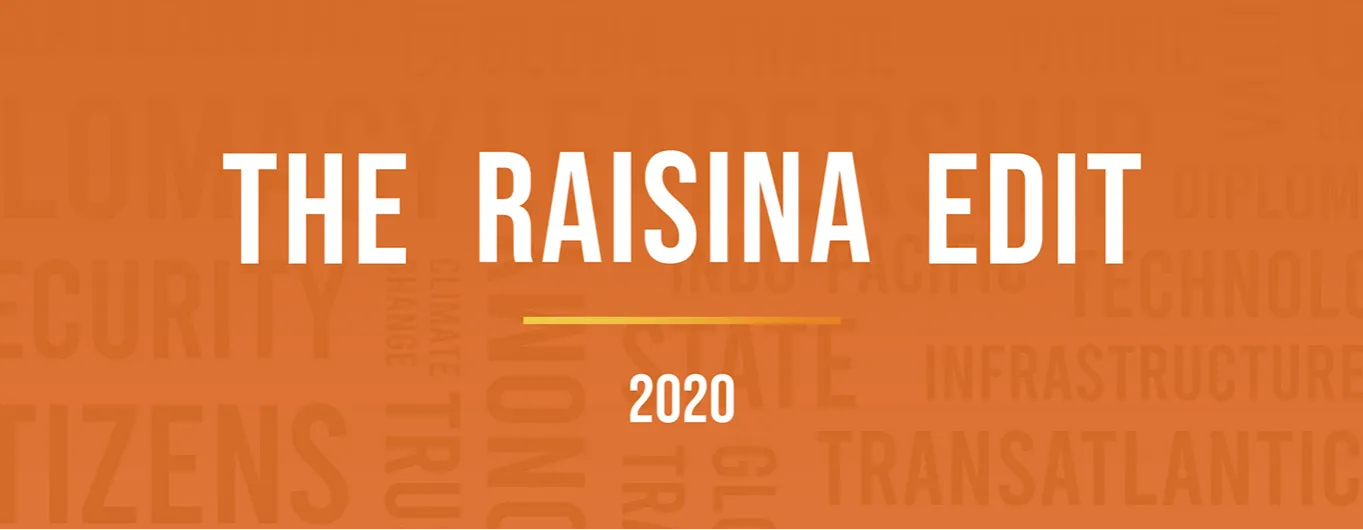
China has given increasing weight to public diplomacy since 2009, when the nation was about to become the world’s second largest economy and was about to take centre stage amid the fog of global economic recessions. Chinese think tanks, media outlets, enterprises, and the general public have all become much more active players in the game of international political economy.
Since 2012, General Secretary of the Central Committee of the Communist Party of China, Xi Jinping, has been calling on various Chinese agencies and experts in public diplomacy to “tell China stories well” to the world, and “present a true, multidimensional and panoramic view of China.” Public diplomacy, as a part of overall Chinese diplomacy, is gaining much greater weight and is resulting in deepening exchanges with foreign politicians, parliamentary groups, think tanks, and media outlets.
In the past decade, the numbers of newly founded Chinese think tanks, overseas branches of Chinese media outlets, as well as Chinese enterprises and Chinese people “going global” have increased significantly. Take think tanks: in 2009 the expression “think tank” was quite unfamiliar to both general public and the elite in China, yet only a decade later, the nation owns more than 2,000 think tanks, making this one of the most exciting industries in the rising economy.
The emergence of these diversified actors in public diplomacy fills gaps in the rising power’s multifaceted interaction with the world, especially in overcoming cross-cultural barriers and delivering debates and thoughts from Chinese thinkers and entrepreneurs.
This, to a certain extent, is in accordance with development trajectories of rising powers in human history. History has shown that the rise of a power is realised through not just vigorous economy and solid defence, but also innovative and influential ideas. Standing at a key juncture in a historical rise, China needs to show the appeal of its ideas and establish deep mutual understanding with the world.
Prominent achievements have been made in recent years, whereas there is wide consensus that these emerging actors of public diplomacy in China still have a long way to go. An evaluation of public diplomacy activities can be conducted by assessing the model of communication — whether monologue, dialogue, or collaboration. Efficient communication is the most important factor in ensuring a successful public diplomacy.
Collaboration-style public diplomacy through cross-national participation in joint projects is growing speedily under the framework of the Belt and Road Initiative (BRI) since 2013.
Throughout the past decade, China has moved quickly from monologue-style public diplomacy toward dialogue and collaboration. There is already broad consensus that monologue-style public diplomacy, which involves one-way communication of policies and stances, only reinforces stereotypes of China among the global audience. Each year in China, think tank summits, media dialogues, academic conferences, as well as business workshops and various other events, are frequently held with wide attendance of international participants. This gives full play to track two diplomacy, i.e., dialogue using both bilateral and multilateral platforms.
Meanwhile, collaboration-style public diplomacy through cross-national participation in joint projects is growing speedily under the framework of the Belt and Road Initiative (BRI) since 2013.
As of October 2019, China has signed BRI MoUs with 137 countries and 30 international organisations. Cross-border industrial parks, factories, various projects, and pilot economic zones have been launched along the BRI corridors to seek new driving forces for global economic growth through economic openness and interconnectivity. Through tangible economic and social development projects, the BRI consolidates multilateral consensus on joint development and shared benefits, and provides a broad stage for building mutual trust and influencing public opinion.
Railways, ports, roads, and other infrastructure that promotes trade opportunities across continents, trade expos, scholarships, cultural exchange programmes, and the high-level Belt and Road Forum for International Cooperation under the BRI framework create opportunities for direct people-to-people communication. In this process, transparency of information has been greatly boosted, although more institutionalised efforts of need to be taken so as to build upon existing communication mechanisms to help enhance collaboration-style diplomacy.
Considering current performance overall, two things need to be urgently emphasised by diversified Chinese actors engaging in public diplomacy to ensure sustainability and greater success of their activities.
First, as credibility is the lifeline of public diplomacy, the course of action should be to emphasise professionalism, objectivity, and transparency of information rather than the use of persuasive tactics and publicity. The latter are also important, but the former provide the foundation for equal dialogue and collaboration with overseas counterparts.
In this regard, there is a stiff learning curve for Chinese entities going global. Take Chinese enterprises. Their overseas corporate social responsibility (CSR) fulfilment is a very important part of China’s public diplomacy. As awareness is increased among these enterprises on the need for transparency of information, they will be able to respond more maturely and take actions such as regularly releasing CSR reports for publics abroad and launching local community support projects. It will of course take time to ensure systematic and strategic planning of their CSR activities that will lead to concerted and effective shaping of their brand and image.
According to a latest blue paper <1> released in Beijing, central-level state-owned enterprises going out have undertaken a pioneering role in CSR fulfilment overseas. From 2013 to 2018, they launched 3,116 investment projects in infrastructure construction, energy resources development, and industrial capacity cooperation along the BRI, creating hundreds of thousands of jobs for locals.
There is a stiff learning curve for Chinese entities going global.
Among the nearly 100 central-level state-owned enterprises going global, 84% have identified social environment problems concerning their business activities, 85% have established CSR mechanisms, and 61% have included CSR in performance evaluations. However, only 22% of them have ever released overseas CSR reports. More than 70% blame a lack of professional organisation and talent in support of their CSR fulfilment activities abroad. Much more needs to be done to integrate overseas CSR into everyday operations, so as to promote employment localisation, facilitate relations with local communities, and boost ecological protection — and in doing so, engage in more positive public diplomacy.
Second, collaboration among Chinese emerging public diplomacy actors is still inadequate. Different entities act on their own, rather than working together to shape an influential communication network. Cooperation between media outlets and other actors of public diplomacy is especially inadequate.
Given the accelerated development of an online society, mass communication across the globe has become a key carrier of public diplomacy. Enterprises and think tanks seeking global influence need to make much better use of media platforms, including traditional and digital ones, to better communicate with global audiences.
At the moment, some Chinese enterprises and think tanks are already present on “We-media” platforms to spread their products and services. But most such information remains limited and inaccessible by virtue of being in the Chinese language, and few organisations pay attention to strengthening interactive dialogues on social media sites.
Enterprises and think tanks going global need to set up regular and mature internal working mechanisms to facilitate their communication teams conducting public diplomacy as part of everyday operations and as part of their key products or services. These entities should also proactively cooperate with media outlets to build an effective communication network across the globe. This is the only way to strengthen and effectively influence international opinion and agenda setting.
In recent years in China, there have been increasing discussions on engaging vigorously and creatively with public diplomacy. For many emerging actors, this is a key direction. Public diplomacy aims to understand and influence global audiences, and it provides a good counterpart to government diplomacy. It is urgent to bid farewell to holding conferences and sending teams on quick trips overseas, and instead focus on fostering collaborative dialogue so as to build a sustainable bridge between knowledge and power, between the elites and publics, and between China and the world.
<1> State-owned Assets Supervision and Administration Commission (SASAC) & Chinese Academy of Social Science (CASS), Research Report on Overseas Social Responsibility of Central Enterprises (Beijing: Social Sciences Academic Press, December 2018).
The views expressed above belong to the author(s). ORF research and analyses now available on Telegram! Click here to access our curated content — blogs, longforms and interviews.




 PREV
PREV



